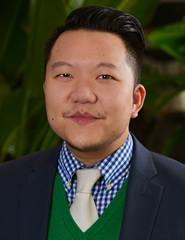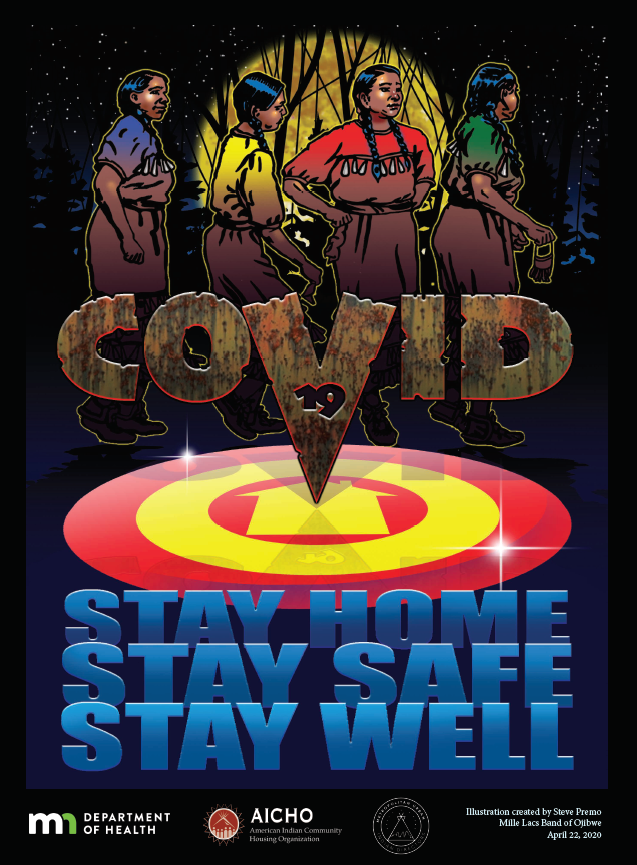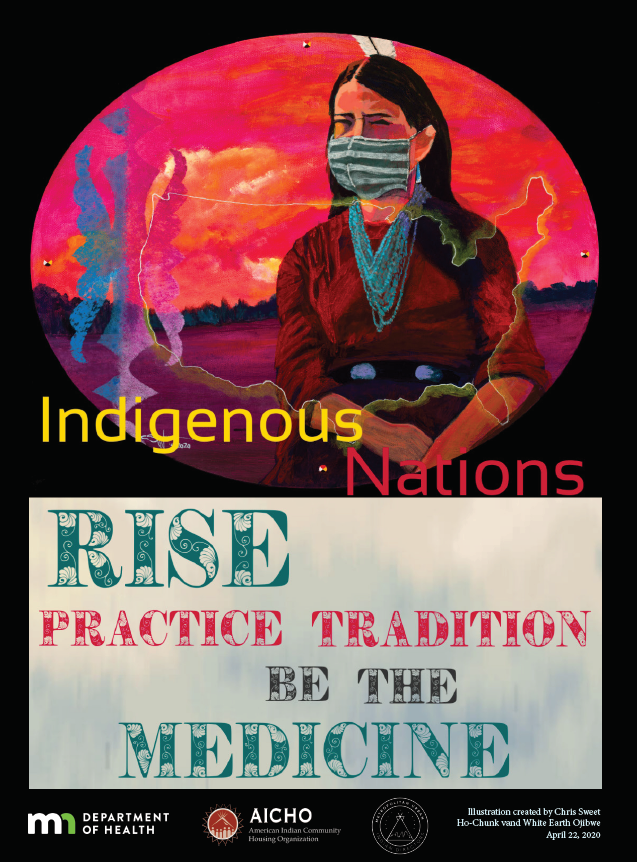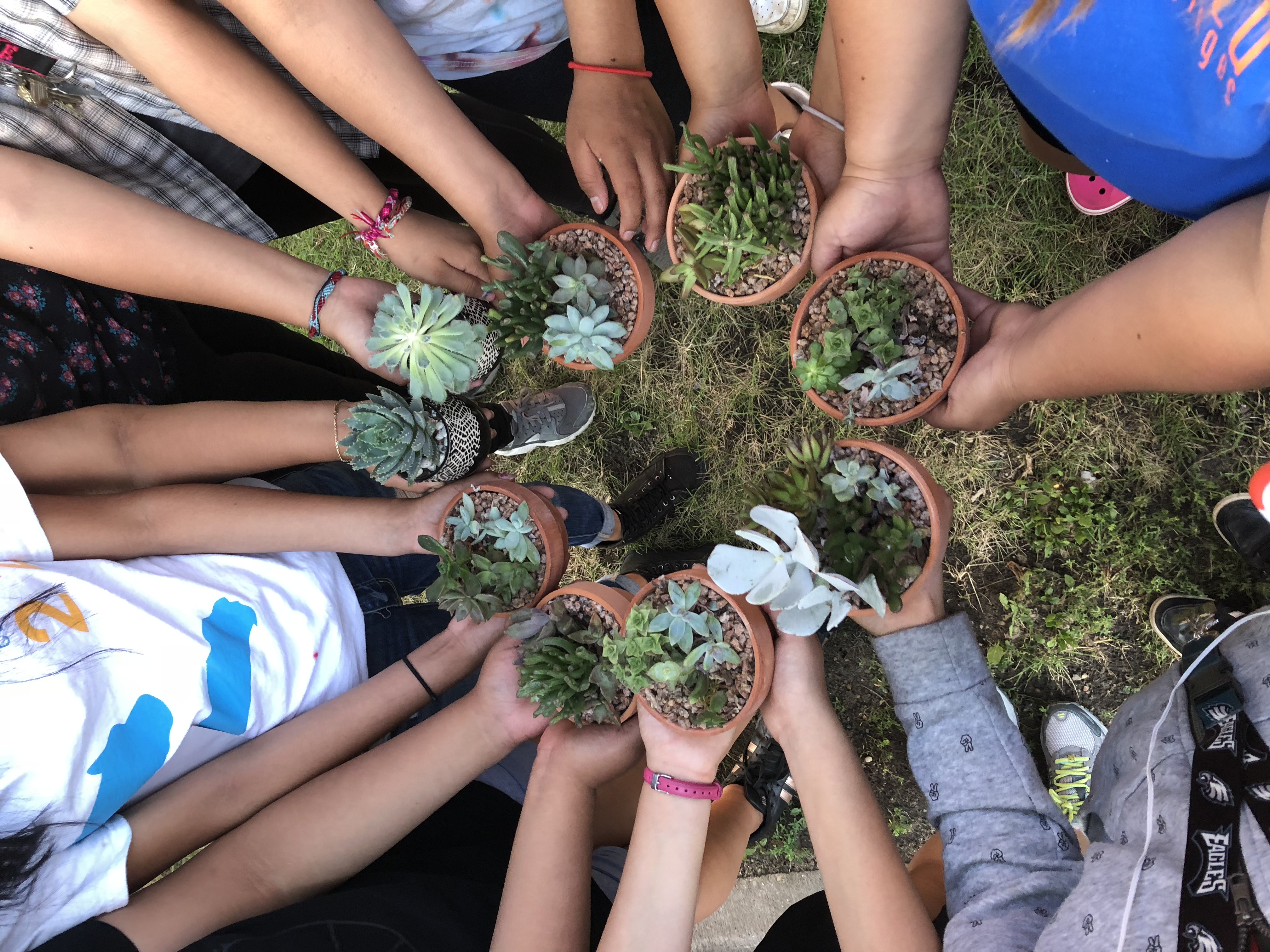Center for Health Equity Newsletter
May 2020

In this newsletter:
Greetings from the Center for Health Equity
Message from the Director
CONNECT: Responding to COVID-19 through an equity lens
STRENGTHEN: Community Solutions grant review process wraps up
AMPLIFY: Guest article from Centro Tyrone Guzman
Greetings from the Center for Health Equity
As the COVID-19 pandemic continues to distort and shape our daily lives, this newsletter shares how the Center for Health Equity is playing a role in MDH’s public health response, and how one community is finding strength and resiliency from within. We’ll also share an update on our Community Solutions for Healthy Child Development grants.
 But first, we’d like to extend a big and joyful welcome to our newest CHE team member, Amy Lopez! Amy comes to us from the MDH Office of Injury and Violence Prevention, and she brings more than 20 years of experience working alongside communities of color, American Indians in urban areas, and Tribal Nations to lead community mobilizing and community development initiatives. Learn more about Amy and all of our staff members on the Health Equity Staff and Contact Information page.
But first, we’d like to extend a big and joyful welcome to our newest CHE team member, Amy Lopez! Amy comes to us from the MDH Office of Injury and Violence Prevention, and she brings more than 20 years of experience working alongside communities of color, American Indians in urban areas, and Tribal Nations to lead community mobilizing and community development initiatives. Learn more about Amy and all of our staff members on the Health Equity Staff and Contact Information page.
While we all work to stay grounded during this turbulent time, CHE would also like to remind our fellow community members that census efforts continue. The data collected by the 2020 Census are critical for our state, our counties, and our communities. The information will shape political representation, funding of government programs, the flow of business and commerce, and the planning and delivery of services to local communities. Historically, the census has undercounted certain groups at disproportionately high rates – including young children, people of color, indigenous people, urban and rural low-income households. Being undercounted deprives communities of equal political representation and private and public resources. If you haven’t already filled out the 2020 Census form, you can do it today at my2020census.gov [LINK EXPIRED].
Interested in being a guest writer for a future newsletter?
Email your idea to health.equity@state.mn.us and we will be in touch!
Message from the Director
 The world has changed since my last quarterly message in February. COVID-19 upended our daily lives as we knew them. Last month we sent out a message regarding the four C practices to embed equity into COVID-19 response. We have been using this frame to guide our work since. We have also seen incredible organizing, resource generation, and mobilization from across sectors to support communities during this crisis.
The world has changed since my last quarterly message in February. COVID-19 upended our daily lives as we knew them. Last month we sent out a message regarding the four C practices to embed equity into COVID-19 response. We have been using this frame to guide our work since. We have also seen incredible organizing, resource generation, and mobilization from across sectors to support communities during this crisis.
Since April 1, all staff from CHE have been pulled into COVID-19 response efforts. We are working in multiple aspects of response, from engagement with cultural and faith communities to coordinating contracts with community-based organizations for emergency response and more. We continue to be in communication with our EHDI and Tribal grantees to ensure that funds are flexible and can be used to respond to urgent needs. We know that the impact of COVID-19 will only exacerbate the root causes of health inequities impacting the communities that grantees serve.
We have also heard concerns from MDH’s Health Equity Advisory and Leadership (HEAL) Council regarding how COVID-19 is impacting communities of color, American Indian communities, disability communities, rural communities, and LGBTQ communities. These concerns align with what we are hearing from across communities regarding testing prioritization, access to medical care, access to personal protective equipment (PPE), and cultural and faith considerations. We are tracking and monitoring these concerns, bringing them to MDH leadership, and coordinating as much as possible with local public health, other state agencies, and the Governor’s Office.
Governor Walz recently announced the creation of a work group on Community Resilience and Recovery (Health Equity and COVID-19) that will coordinate across sectors to monitor COVID-19 impacts on communities most impacted currently by inequities and identify solutions and swift responses. I am honored to serve on this work group and serve as a link between MDH, the Governor’s office and the communities we serve.
We don’t know how long we will be in this situation of crisis and uncertainty. What we do know is that we will not be the same when we come out on the other side. So together, we must imagine and create the systems and structures we want to see in the emerging future—a future where equity is the bedrock of our society, where communities most impacted by inequities don't “fall through the cracks,” and where society isn’t rebuilt “upon their backs.” We at the Center for Health Equity look forward to building this new world with each of you.
Kou Thao
Director, Center for Health Equity
CONNECT
We are a network hub – leading, connecting and strengthening networks of health equity leaders and partners across MDH and Minnesota communities.
Responding to COVID-19 through an equity lens
The Center of Health Equity has been moving quickly over the past weeks and months to support communities most impacted by COVID-19. CHE staff have been reassigned to positions within Minnesota’s Incident Command System (ICS), which provides a consistent and effective framework for partners (such as law enforcement, healthcare and fire departments) to respond to an emergency. ICS allows us to manage emergencies by objectives, so that everyone on the response team knows the focus of the effort and their role in it.
CHE Director Kou Thao has been reassigned full-time to lead the Partners Section of the ICS. This section is responsible for working with external partners to address the impact of COVID-19 on Minnesotans – particularly communities of color, American Indian communities, and other communities most affected by inequities. The largest branch of the Partners Section is the Cultural and Faith Communities Team, which is responsible for communication and outreach to communities and for listening, learning, and acting on the needs and concerns expressed by the diverse communities we serve during the COVID-19 pandemic.


The Partners Section also includes a public hotline (651-201-3920 or 1-800-657-3903) where staff are responding to an average of 500-1000 calls on weekdays and 200 calls on weekends. A separate hotline is available for questions about COVID-19 to schools or child care centers (651-297-1304 or 1-800-657-3504). The hotlines take calls from 8 am to 6 pm, seven days a week. A Language Line is available for non-English speakers.
At the same time, major efforts are underway to deepen our partnerships with other state agencies and community partners. For example, CHE has been working with the Minnesota Department of Human Rights to track, inform, and educate about discrimination toward Asian Americans and Asian immigrants. A Viruses Don’t Discriminate poster [EXPIRED LINK] has been widely disseminated and is available to download from the MDH COVID-19 Materials and Resources website. It includes numbers to call (651-539-1133 or 1-800-657-3704) if you have been discriminated against because of the pandemic.
We’re also strengthening relationships with communities of color and American Indian communities through community engagement around COVID-19 and its impacts on community. The Cultural and Faith Communities Teamhas designated community liaisons that are working with and alongside the African American, American Indian (Tribal Nations and urban), Asian- Pacific Islander, elder, Hmong, Latinx, LGBTQIA, recently arrived refugee, and Somali and African immigrant communities. The Cultural and Faith Communities Team also includes staff working specifically to address COVID concerns related to childcare, disability communities, faith-based communities, the homeless, migrant workers, and rural communities.
The voice of community members is a critical component of the MDH Partners Section COVID-19 response. Thank you for being our trusted partners. We are in this together!
Selected COVID-19 Equity Resources:
- Message from the Center for Health Equity: Response to COVID-19
- MDH COVID-19 webpage
- COVID-19 and Civil Rights
- Minnesota COVID-19 Public Dashboard (includes race/ethnicity data)
STRENGTHEN
We provide leadership in advancing health equity and cultivate health equity leaders within MDH and across Minnesota communities.
Community solutions grant review process wraps up
Amid the flurry of efforts around COVID-19, the grant review process for Community Solutions for Healthy Child Development has continue to move forward with our community partners.
This state legislative grant program was created through the tireless advocacy work of Voices and Choices for Children Coalition, Children’s Defense Fund, and several other community organizations aiming to bring the voices of people of color and American Indian communities into decision-making spaces. Voices and Choices listened to the voices of community members and helped pass the legislation in 2019 to fund this innovative grant program. Community Solutions focuses on improving outcomes for children of color and American Indian children in Minnesota through a community-led and equity-centered approach.
The legislation directed MDH to convene a Community Solutions Advisory (CSA) Council comprised of 12 community members who bring professional expertise and lived experience in racial equity, early childhood development, and advocacy. The council co-created the grant and served as the reviewers for these grant applications.
The council continues to meet regularly via virtual meetings. Throughout the review process, the council has been carefully considering the applicants through a holistic and equity-centered lens.
"With the Community Solutions Fund, we are charting new territory," said council member Betty Emarita. "Over 25 percent of Minnesota millennials are people of color and American Indian, as are nearly a third of Minnesota children ages four and under. Intentional learning between the public sector and these communities can lead to new growth in the real economy – which we sorely need in these challenging times."
The council is on track to make funding recommendations to MDH this spring and grants awarded by summer 2020.
AMPLIFY
We amplify the work of communities most impacted by health inequities and support them to drive their own solutions.
This guest article comes from Centro Tyrone Guzman – a grantee of the Eliminating Health Disparities Initiative (EHDI) since 2006. Through this grant, they address disparities related to HIV/AIDS, sexually transmitted infections, and teen pregnancy through a multi-faceted, culturally-responsive youth program model.
When Times Get Tough, Our “Raíces” Keep Us Grounded
Historically, low-income Latine* families in Minneapolis have experienced many health disparities and barriers to economic stability. Today, studies suggest that these families are being disproportionately impacted by the COVID-19 crisis. For many Latine youth, their everyday challenges have now become even harder – as they not only lament missed school/social events, but also experience food insecurity, heightened immigration fears for themselves or loved ones, and/or concern for the well-being of family members who lack health insurance.
Centro Tyrone Guzman’s “Raíces” (“Roots”) Youth Development Program has been a grantee of the Eliminating Health Disparities Initiative (EHDI) since 2006 – addressing disparities related to HIV/AIDS, sexually transmitted infections, and teen pregnancy through a multi-faceted, culturally responsive program model. Raíces provides Latine youth in grades 6-12 with holistic in-school and out-of-school programming emphasizing academic support, personal and cultural identity, health and wellness, and leadership development.
 Confronted with the realities of the COVID-19 crisis, Raíces shifted its strategies, implementing creative approaches to support and engage youth from a distance. Shortly after group meetings were suspended, each youth received a self-care package with positive, motivational activities, and everything needed to plant a small herb garden at home. While providing ample opportunities to learn about science and nutrition, the activity also gave each youth a new responsibility of tending the garden over the coming weeks.
Confronted with the realities of the COVID-19 crisis, Raíces shifted its strategies, implementing creative approaches to support and engage youth from a distance. Shortly after group meetings were suspended, each youth received a self-care package with positive, motivational activities, and everything needed to plant a small herb garden at home. While providing ample opportunities to learn about science and nutrition, the activity also gave each youth a new responsibility of tending the garden over the coming weeks.
Through the online meeting platform Zoom, youth then participated together in a grounding art exercise – decorating their herb planters with art supplies from the self-care package. In the live, virtual meeting, each youth reflected on their own identity while drawing/painting a plant with three components: (1) roots, (2) a trunk/stem, and (3) leaves/flowers. For the roots, youth creatively responded to prompts such as: Where do you come from, and What experiences in your life have shaped you? Youth then responded in a similar way to prompts related to the trunk/stem and leaves/flowers.
At-home gardening builds on the past work of their Youth Social Entrepreneurship (YSE) project – “Hecho con Raíces” – where the youth produce and sell homemade salsas, gaining business experience and important life skills. In a “normal” spring, youth would be planting their garden and gearing up for farmers markets – their primary site for salsa sales. With so many unknowns about the summer, at-home gardening is helping youth maintain hope and a positive attitude.
In addition to virtual youth gatherings and at-home activities, the Raíces staff is working cooperatively across the organization to provide family-centered case management – collectively providing weekly, one-on-one assistance to about 450 low-income Latine families via phone, email, and/or videoconferencing. In line with the most urgent needs identified by families, Centro Tyrone Guzman is distributing food/diaper packages and financial assistance, as staff members assist families in accessing other resources and addressing challenges that arise.
Research has illustrated both the importance of social connections and the many negative consequences of isolation on mental and physical health. Especially during this difficult time, Centro Tyrone Guzman remains more committed than ever to providing Raíces youth with the resources and support they need to maintain a strong sense of purpose as they continue learning and contributing to their families and communities.
Raíces is eagerly awaiting the day when youth can reunite again, experiencing the energy and joy of being in the same physical space. In the meantime, staff will continue working with youth to find strength and stability in their “raíces,” while discovering hope in the many new, flourishing at-home gardens across the city.
*Centro Tyrone Guzman has chosen to use “e” in place of the Spanish-language masculine ”o” to include people of all genders. We are committed to gender inclusion and recognize the important contributions that all persons make to our communities.